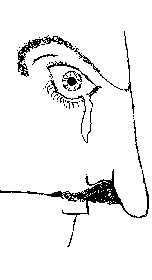Rich (12/26): Midnight's Children by Salman Rushdie.
 An old man kneels in the early morning and prays. Of what? His wife, his children, or of his country? He is silent, solemn in his reverence. Rushdie begins "Midnight's Children" with this image of an obedient, penitent man, asking what his role in life should be. The man does not wait for an answer.
An old man kneels in the early morning and prays. Of what? His wife, his children, or of his country? He is silent, solemn in his reverence. Rushdie begins "Midnight's Children" with this image of an obedient, penitent man, asking what his role in life should be. The man does not wait for an answer. A child is born on the stroke of midnight, as his country declares its independence. Every child is, undoubtedly, the future of any nation, but for such a nation that is just learning to walk, his hopes and dreams are its hopes and dreams. There is no bubble, no house on a hill on the countryside that insulates him from the world. In his basement, there lies a fugitive. In his kitchen, the uncle plots to overthrow the government. In the laundry room, his mother dreams of a forbidden love. When war breaks out with his neighbor, he is on the front line, holding a weapon. And, when martial law suspends basic civil rights inside the nation's borders, he turns into a savage.
With "Midnight's Children," Rushdie is ambitious. He wants to tell a story from beginning to end. But, as he gingerly pulls on the string, the knots become tighter, and this string cannot be separated from the others. Each must be described as it comes. Chronology is unimportant; what matters is that story be told. But, as Rushdie progresses deeper, he reveals that the jangle of strings is one continuous piece, distorted and twisted. This departure from a conventional linear flow is integral to understanding the characters and events. Rushdie shows that a person is not just defined by points in his own timeline. His father's politics and his mother's stubbornness reveal more than his own thoughts at the time could. The hindsight from the future enhances the frozen still-frame of the present by adding the trajectory of his growth. More than that, each life is a product of its environment, whether that be a child growing up in a fledgling nation or a country imperfectly cut along ethnic lines.
Salman Rushdie stands in the shadow of the bounty on his head, resulting from "Satanic Verses." But, in literary circles, he is known for this work. Like that of Galileo, Rushdie's work will outlive and eclipse his critics. It's a just shame that he will be unappreciated by the larger masses, particularly since it is their own story that he is recounting.


 Vonnegut is a genius. Go read this book.
Vonnegut is a genius. Go read this book.